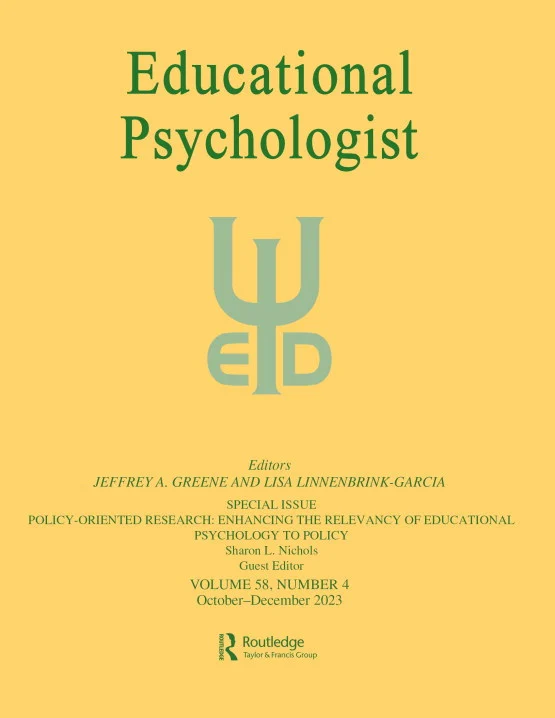家长参与支持学生的数码学习
IF 11.4
1区 心理学
Q1 EDUCATION & EDUCATIONAL RESEARCH
引用次数: 7
摘要
在K-12教育中,越来越多的孩子在家里通过新的数字学习工具学习,这引发了关于父母参与数字空间的性质变化的重要问题。本文使用Hoover-Dempsey和Sandler父母参与模型来讨论在向更多的数字化和在线学习转变的过程中,父母参与孩子K-12学习的决定,特别关注该模型如何解释技术的创新演变和父母对数字空间学生的支持。在学生数字化学习的背景下,提出了一些具体的问题来挑战传统的父母角色建构、有效性和参与邀请的观念。讨论涵盖了重视有意义的数字学习机会的参与实践的重要性,父母对向数字空间转变的关注,父母使用技术的信心,以及利用技术促进双向沟通以解决父母在支持孩子的数字学习时的担忧。本文章由计算机程序翻译,如有差异,请以英文原文为准。
Parental involvement in supporting students’ digital learning
Abstract Within K-12 education, increasing numbers of children are learning via new digital learning tools while at home, raising important questions about the changing nature of parents’ involvement in digital spaces. This article uses the Hoover-Dempsey and Sandler parental involvement model to discuss parents’ decisions to become involved in children’s K-12 learning amidst the shift to more digital and online learning, focusing specifically on how the model accounts for the innovative evolution of technology and parental support of students in digital spaces. Specific questions are posed to challenge traditional conceptions of parental role construction, efficacy, and invitations for involvement within the context of students’ digital learning. Discussion covers the importance of involvement practices that value meaningful digital learning opportunities, parental concerns over the shift to digital spaces, parental confidence using technology, and utilizing technology to foster bi-directional communication to address parents’ concerns as they support their children’s digital learning.
求助全文
通过发布文献求助,成功后即可免费获取论文全文。
去求助
来源期刊

Educational Psychologist
Multiple-
CiteScore
19.10
自引率
3.40%
发文量
16
期刊介绍:
The Educational Psychologist is a scholarly journal dedicated to exploring the psychology of learning and instruction. Articles in this journal encompass a diverse range of perspectives, from examining psychological mechanisms to exploring social and societal phenomena related to learning and instruction. The journal publishes theoretical and conceptual articles, as well as reviews and meta-analyses, that significantly contribute to theory or advance the methods used to explore educational psychology. Emphasizing innovation and advancing understanding, the journal does not publish articles solely reporting the methods and results of empirical studies; instead, all submissions, including reviews and meta-analyses, must offer clear implications for advancing theory. In addition to regular articles, the journal features special issues that delve into important themes in educational psychology, along with focal articles accompanied by peer commentary.
 求助内容:
求助内容: 应助结果提醒方式:
应助结果提醒方式:


